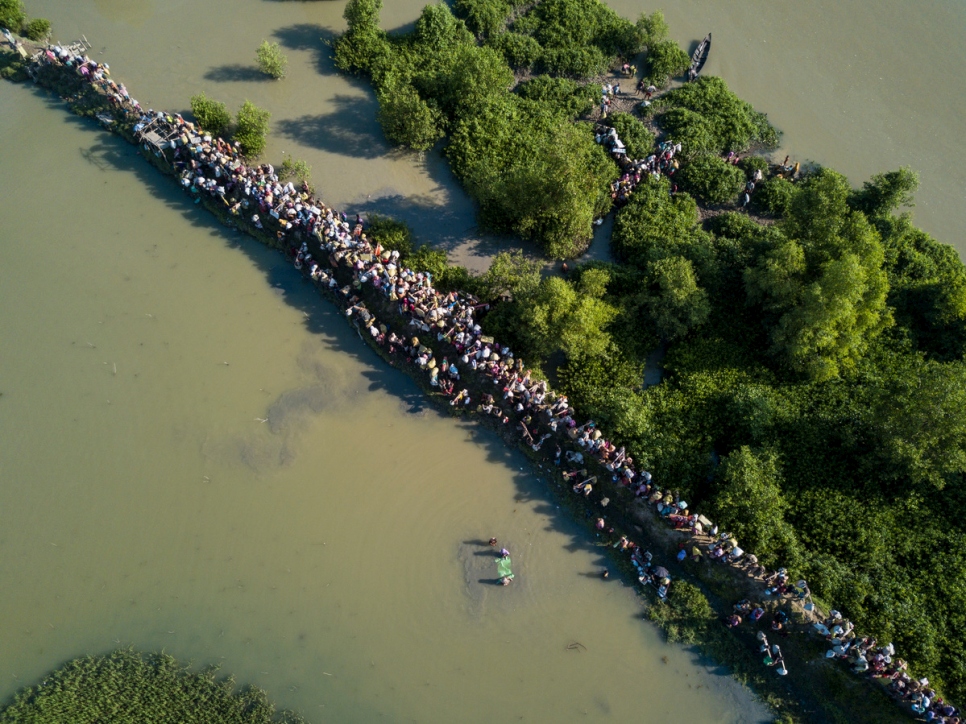This is a summary of what was said by UNHCR spokesperson Duniya Aslam Khan – to whom quoted text may be attributed – at today’s press briefing at the Palais des Nations in Geneva.
Thousands of refugees from Myanmar have been admitted to Bangladesh after spending up to four days stranded near the border.
By last night Bangladesh border guards reported that over 6,800 refugees had passed through Anjuman Para border village in Cox’s Bazar district. Thousands more are said to be on their way from Myanmar.
The most vulnerable among the new arrivals are bussed from the border to a transit centre near Kutupalong camp. At the centre, UNHCR, the UN Refugee Agency, and its partners provide food, water, medical checks and temporary shelter.
Other new arrivals walk to Kutupalong refugee camp, where they spend the night in existing structures and buildings.
Meanwhile UNHCR and its partners continue to work with the Bangladesh authorities on the new Kutupalong extension site. Site planning and development are underway to allow the new refugees to move in as different zones within the site are readied. Tube wells and latrines are being installed to give the new refugees access to clean water and sanitation facilities.
To target assistance and protection interventions, UNHCR is continuing its joint family counting exercise with the Refugee Relief and Repatriation Commission. More than 247,606 refugees have so far been counted and the exercise is now taking place in Kutupalong Extension.

An aerial shot shows thousands of new Rohingya refugee arrivals crossing the border near Anjuman Para village, Palong Khali, Bangladesh. © UNHCR/Roger Arnold
We hope for timely and generous donor support at the pledging conference for Rohingya refugee crisis on 23 October in Geneva. The joint response plan requires US$434 million to meet the life-saving needs of all Rohingya refugees and their host communities – together an estimated 1.2 million people – for the difficult months to come. UNHCR’s portion of that plan amounts to US$83.7 of additional funds until the end of February 2018.
Our emergency assistance focuses on refugee protection, shelter, water and sanitation, establishing new sites, upgrading infrastructure and strengthening the capacity of the local communities across south-east Bangladesh. Since the onset of the current emergency, UNHCR, upon the request of Bangladeshi authorities has expanded its response and operations, presence and staff throughout south-east Bangladesh.
For UNHCR, it is vital even at the early stage, that its response reflects mid- to long-term needs, while at the same time ensuring that the voluntary return of refugees in safety and dignity remains a viable option. In this regard, restoring peace and stability in northern Rakhine state is critical.
For more information on this topic, please contact:
Share on Facebook Share on Twitter